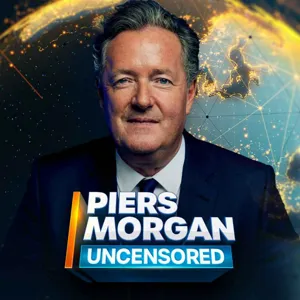Podcast Summary
Achievements towards peace in the Middle East: President Biden reiterates support for a two-state solution, echoing past presidents, amid ongoing conflict between Israel and Hamas. Affordable wireless plans from Mint Mobile offer relief from inflation.
Despite the ongoing conflict between Israel and Hamas, there have been significant achievements towards peace in the Middle East, with past presidents advocating for a two-state solution. Mint Mobile offers an affordable solution to inflation woes with premium wireless plans starting at $15 a month. In the midst of rising tensions, President Biden reiterated his support for a peaceful resolution between Israelis and Palestinians, echoing the sentiments of past presidents. While peace may not come overnight, recognizing past achievements can provide hope for a future of safety, security, and dignity for both Israelis and Palestinians. Take the NPR survey at npr.org/fallsurvey to share your thoughts and help improve the show.
Historic Summit at Camp David between Israeli and Palestinian Leaders: Despite Clinton's efforts, the historic Camp David summit between Israeli and Palestinian leaders ended in failure, highlighting the complexities and challenges of resolving long-standing conflicts and the importance of continued efforts towards peace.
During the final months of his presidency, Bill Clinton made a last-ditch effort to bring peace to the Middle East by hosting a historic summit between Israeli prime minister Ehud Barak and Palestinian leader Yasser Arafat at Camp David in July 2000. Despite Clinton's best efforts and formidable political skills, he was unable to broker a deal that would allow both parties to live in peace. The summit ended in failure, leaving the region with more hostility, bitterness, and potentially more violence. This event serves as a reminder of the complexities and challenges involved in resolving long-standing conflicts and the importance of continued efforts towards peace and understanding.
Historic Camp David Summit of 2000: A Turning Point for Core Identity Issues: The Camp David Summit of 2000 was a pivotal moment in Israeli-Palestinian negotiations as it forced the parties to confront core identity issues for the first time. While the atmosphere was uncertain due to Palestinian reluctance, the summit ultimately proved to be a crucial step towards resolving the conflict.
Key takeaway from the Camp David summit in July 2000 is that the organized and disciplined negotiations between Israeli Prime Minister Ehud Barak, Palestinian Authority President Yasser Arafat, and U.S. President Bill Clinton marked the first time the parties had to confront core identity issues. The atmosphere was uncertain due to Arafat's refusal to allow serious negotiations before the summit. Barak argued that a summit would create a pressure cooker for decision-making. However, Arafat's negotiators were not taking the process seriously, and there was competition among them. Interestingly, some Palestinian negotiators did push for an agreement and even created a back channel with the Israelis. Despite the initial uncertainties, the summit was a crucial step towards addressing the core issues and ultimately proved to be the right decision.
First direct talks on core issues at Camp David Summit: The Camp David Summit in 2000 brought Israelis and Palestinians closer to peace than ever before, despite no agreement, through serious discussions on core issues like Jerusalem and refugees.
The Camp David Summit in 2000 marked a significant milestone in the Israeli-Palestinian peace process, as it was the first time the two sides directly engaged on the most fundamental core issues of the conflict, including Jerusalem and refugees. Despite the lack of an agreement at the time, the serious and prolonged discussions provided valuable insights that ultimately led to the presentation of the Clinton Parameters in December 2000. The parameters were approved by both sides, with reservations, marking a significant step forward in the peace process. Looking back, it is clear that the parties came closer to peace than previously thought.
Palestinian leader Yasser Arafat rejected a peace deal at Camp David Summit: Despite the delegation's agreement, Arafat rejected a potential peace deal, believing he could secure a better offer from President Bush, resulting in ongoing conflict and emotional challenges for the speaker.
During peace negotiations in 2000, Palestinian leader Yasser Arafat came close to making a deal with Israel at the Camp David Summit but ultimately rejected it. The former Palestinian negotiator revealed that the entire delegation had agreed to accept the offer but Arafat refused. Arafat believed he could still secure a better deal from President Bush. He was known for keeping options open and not closing the door on ending the conflict entirely, but it seemed too far for him at the time. Reflecting on this experience, especially in light of the recent escalation of the conflict, has been emotionally challenging for the speaker. The speaker has seen progress towards peace being undermined by acts of violence in the past and feels the current situation is heartbreaking.
Discussing coexistence between Israelis and Palestinians: Despite current challenges, finding a way towards peaceful coexistence between Israelis and Palestinians is crucial and achievable.
Learning from this discussion with Ambassador Dennis Ross is the importance of finding a way towards coexistence between Israelis and Palestinians despite the current challenges. Ross emphasized that both groups are not going anywhere, and it's crucial to focus on the future and how to achieve peaceful coexistence. He also expressed optimism that this goal can be achieved, even though it's not currently the case. Listeners are encouraged to share their thoughts on the Consider This podcast and suggest improvements by completing a short anonymous survey at npr.org/fallsurvey. The podcast covers various issues and encourages active engagement with voters and their concerns. For investors, Washington Wise is an original podcast from Charles Schwab that unpacks the stories making news in Washington and how they may impact portfolios.





